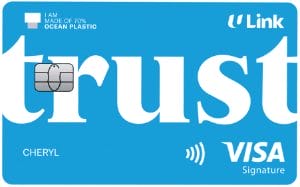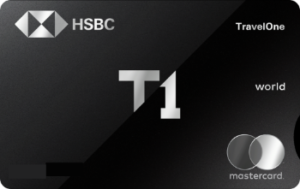At the start of 2024, YouTrip became the first multi-currency wallet in Singapore to increase its wallet and annual spending limits to S$20,000 and S$100,000 respectively, up from the previous S$5,000 and S$30,000. This followed an October 2022 proposal by the MAS to raise the caps on e-wallet transactions.
However, there was no similar move by GrabPay or Revolut- until now. Revolut has sent an email to its customers announcing that it will “soon” be increasing their account limits, though an exact date has not been specified.

Good news — we’ll soon be increasing your account limits. This means you’ll be able to transact up to S$100k (previously S$30k), and hold up to S$20k (previously S$5k) in your Revolut account.
-Revolut
Revolut’s increased wallet limits

Revolut customers will soon have their maximum wallet limit and annual spending limit upgraded as follows:
| Previous Limit | New Limit | |
| Max Wallet Limit | S$5,000 | S$20,000 |
| Annual Spending Limit | S$30,000 | S$100,000 |
In line with the increased limits, Revolut will also be introducing additional security measures such as only allowing one linked bank account and one card to be saved to your Revolut account. If you have any preferences on the bank account or card you wish to keep, you’ll need to remove the rest of the linked accounts or cards by 2 June 2024 (talk about short notice!).
Unfortunately, that’s all the information that’s been shared for now, so we don’t know if there’ll be other productivity-killing “enhancements” like the 12-hour cooling-off period when logging into your account from a new device (which YouTrip introduced when it raised transaction limits).
What are the implications?
I don’t usually give YouTrip or Revolut much coverage on this blog, for the simple reason that you can’t earn credit card rewards on such transactions. After all, if given a choice between earning 4 mpd and paying an implicit FCY fee of 2% with Amaze, or earning no miles and paying a minimal spread with YouTrip/Revolut, I’d always choose the former.
However, YouTrip and Revolut can still come in useful in situations where:
- your only concern is minimising the total cost of the FCY transaction
- credit card rewards can’t be earned
With regards to the first point, the previous S$5,000 transaction cap was a huge impediment because it prevented you from using Revolut on big ticket transactions. Now that the limit has been raised to S$20,000, Revolut becomes a more viable alternative.
With regards to the second point, if you can’t earn credit card rewards, you might as well keep the total cost of your transaction down.
Credit card or multi-currency debit card?
 |
 |
|
| Trust Credit Card | Multi-Currency Debit Cards | |
| Pros |
|
|
| Cons |
|
|
I recently wrote a post on whether you should use the Trust Card for overseas spending, and I want to reproduce one of the sections here because I think it’s relevant to the discussion.
If you don’t care about rewards and just want to minimise the cost of your transaction, should you use a Revolut/YouTrip multi-currency debit card, or should you use Trust?
One of the key advantages of multi-currency debit cards is that you’ll enjoy better rates than Trust (which uses Visa rates), assuming it’s not the weekend where rates can be worse.
| Amount | YouTrip | Visa | Spread |
| US$100 | S$135.24 | S$135.26 | ~0% |
| A$100 | S$89.21 | S$89.77 | 0.6% |
| ¥10,000 | S$86.13 | S$86.42 | 0.3% |
| €100 | S$146.20 | S$146.95 | 0.5% |
| £100 | S$171.67 | S$172.46 | 0.5% |
Moreover, multi-currency debit cards allow you to lock in today’s rates for future spend. For example, if you feel the JPY/SGD rate today is good, you can go ahead and buy JPY for your trip six months down the road (keep in mind there’s still the opportunity cost of funds to consider, since your YouTrip/Revolut balance earns no interest).
In contrast, Trust Cardholders can only take advantage of the prevailing rate at the time the transaction is processed.
So why consider Trust? Well, if you’re making a very big transaction that would bust even the increased YouTrip/Revolut limits, then you might not have a choice. As a credit card, Trust is capped only by the assigned credit limit, and in my experience they’re very generous with this.
Then there’s fraud considerations. As a debit card, any transactions charged to your Revolut or YouTrip, whether fraudulent or legitimate, are immediately deducted from your account. There was a recent feature in CNA about the pitfalls of multi-currency card fraud prevention, including the horror story of a customer who found her YouTrip wallet drained by 31 unauthorised transactions in quick succession and had to wait months to recover her funds.
There are ways of protecting yourself, however, such as locking your multi-currency card whenever it’s not in use. If you’re only taking that trip a few months down the line, there’s no reason to leave your card unlocked in the interim.
In contrast, if your credit card gets hit by a fraudulent transaction, there is no immediate deduction of funds. You can spot the fraudulent transaction on your statement and open a dispute with the bank, and in the majority of cases you should receive a temporary credit to offset the disputed amount while investigations are carried out.
| 🏧 ATM withdrawals |
|
Trust allows you to make unlimited fee-free withdrawals from overseas ATMs, while YouTrip only offers S$400 of free withdrawals per month, after which a 2% fee applies. Revolut allows up to S$350 or five withdrawals per month on the Standard plan, after which a 2% fee applies. Do note that the overseas bank operating the ATM may impose a fee of its own, but that’d be the same whether you used Trust or Revolut/YouTrip. Also, when using Trust for ATM withdrawals, be sure to toggle it to debit card mode (on the app, switch the source to “pair with savings account”). You want to make a withdrawal from your Trust savings account (free), not a cash advance from Visa ($$$). |
On a similar note, debit cards do not support so called “authorisation holds”, the type required when you rent a car or check in to a hotel. This means that the hold amount is automatically deducted from your available funds, leaving you with less money on hand. For instance, if you have a Revolut balance of US$1,000 and use the card to rent a car, and the rental car company puts a US$400 hold, you only have US$600 left to spend. If you used the Trust Card, there’d be no deduction of funds because it’s a credit card.
Finally, as a credit card, Trust allows you to stretch your cashflow. While multi-currency debit cards involve an immediate deduction from your account, transactions on the Trust Card are only due later when the statement amount becomes payable.
Conclusion

Revolut customers will soon be able to hold up to S$20,000 in their wallet, and transact up to S$100,000 per year. This will put the platform on par with YouTrip, which lifted its limits at the start of 2024.
If credit card rewards weren’t in the picture, however, I would probably default to Trust simply for the greater convenience and fraud protection offered by a credit card.






